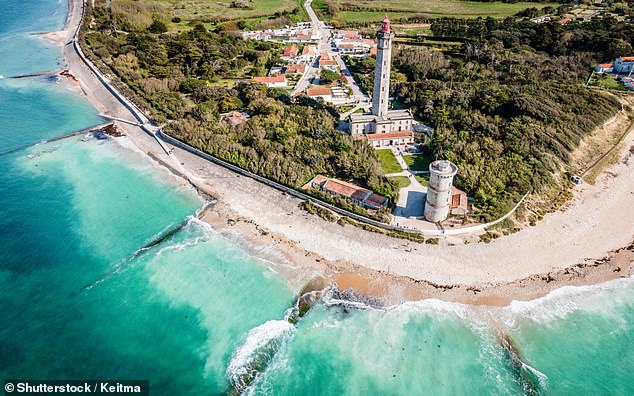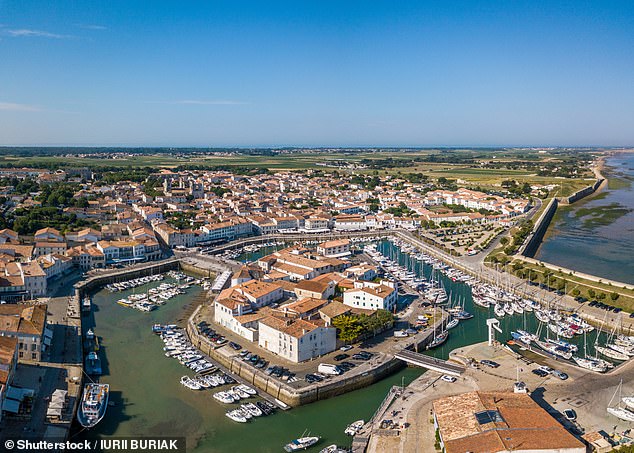France’s post-Brexit rule change sees UK demand for holiday homes increase sixfold: red tape makes it easier to own a second home
The number of Brits wanting to buy holiday homes in France has risen by almost 600% after the country passed a law giving British second home owners the automatic right to stay for six months.
Data from Kyero, a British international property dealer, revealed that in the three weeks since the new post-Brexit law was passed on December 21, there was a 582% increase in the number of Brits looking at French properties on the site.
The data, first reported by the Telegraph, showed that the highest number of queries were for the Alpes-Maritimes area, in south-eastern France, a region where Cannes is located and borders Monaco.
Close behind in the rankings were Charente, home to the city of Cognac, known as the birthplace of the spirit, and Haute-Vienne.
France relaxed post-Brexit visa rules, which previously forced British property owners to apply for long-stay visas of up to six months, and limited the amount of time they could stay in the country without applying for a formal visa.
Data from Kyero, a British international property dealer, showed that in the three weeks since the new post-Brexit law was passed on December 21, there was a 582% increase in the number of Britons looking at French properties (File image)

France has relaxed its post-Brexit visa rule, requiring British property owners to apply for a long-stay visa of up to six months (File image)

Although visa rules have been relaxed, second home owners in France face a litany of problems (File image)
Applications for long-stay visas are often expensive and time-consuming, with many people claiming they are experiencing increasingly long wait times at application centres.
But the new rules, part of a package of amendments to the immigration law, will automatically give second home owners long-stay visas.
Although the law has passed through the two houses of the French Senate, it faces a final hurdle when it is vetted by the country’s Constitutional Council, a top-level body that makes decisions on whether proposed laws comply are with the constitution.
After this, the law will be brought into force by President Macron, whose government has previously expressed its opposition to the bill, claiming that the previous rules were already generous to British second home owners.
Although visa rules have been relaxed, second home owners in France are facing a litany of problems.
Early last year, France hit British homeowners with a rise of up to 60% in council taxes, further exacerbating their misery.
A British couple previously told the Mail they were thinking of selling their five-bedroom house in France, built in the 15th century, because of tax rises.
Creative director Simon Amster, 55, and his wife bought the 15th-century five-bed hideaway in the village of Sauveterre-de-Bearn, near Biarritz, eight years ago for just 50,000 euros (£42,000).
The couple, who live in Lewes, East Sussex, currently pay €1,400 in annual property tax. But they are among the 86,000 British households with a second home who now face a significant tax increase thanks to President Macron’s latest reforms.
Mr Amster said: ‘Macron’s tax increases have pushed us to sell. Because of all these extra costs, our second home, which used to be a source of pleasure, is now a source of concern.
‘My wife’s mother lives in the neighboring village, so it is very convenient that we have the house so that we can take care of her when needed.
‘There is also a lot of uncertainty about the consequences of these taxes for us. We expect quite a big jump, perhaps around 20 percent.
“It’s a first world problem, but it turns what used to seem like a relatively affordable vacation into what is now a serious financial concern.”
